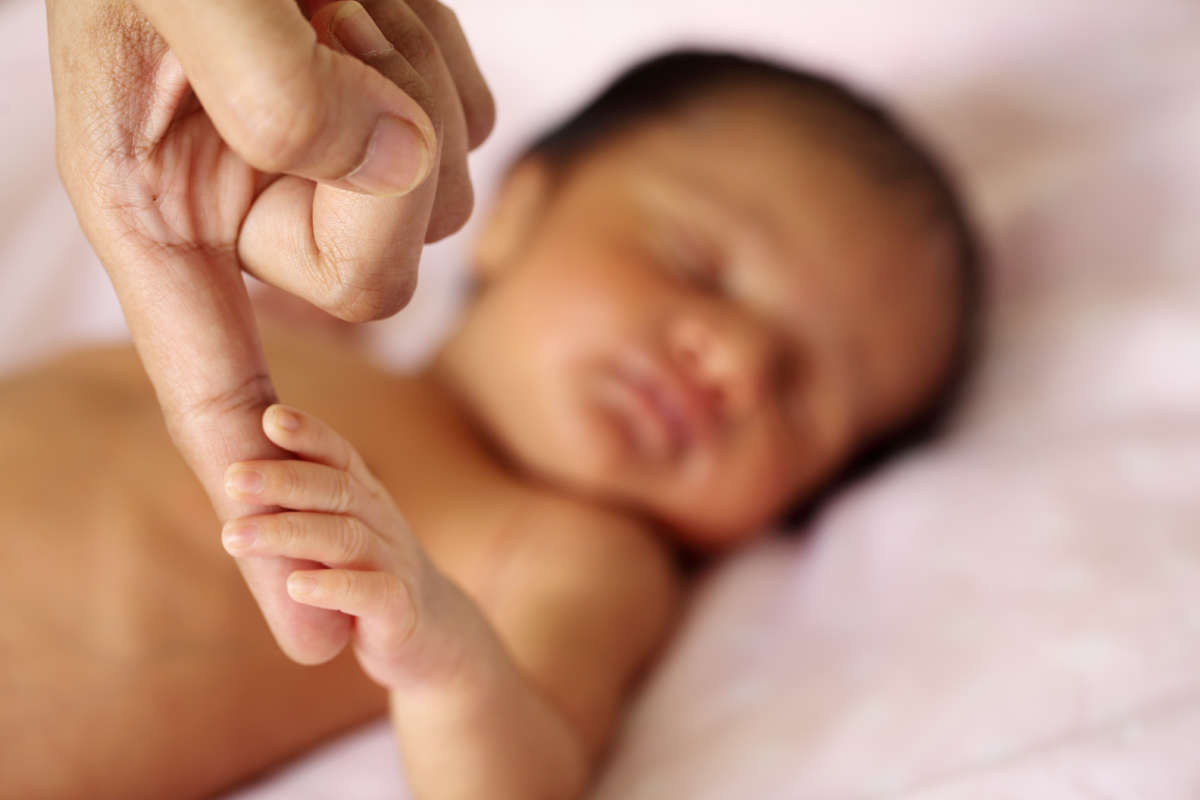America’s very youngest citizens are hardly immune from the inequities exposed — and, in some cases, worsened — by the pandemic. And for infants and toddlers, the consequences could be particularly long-lasting given how crucial this period of development is, according to a new report released by ZERO TO THREE, an early childhood nonprofit. Members of this age group have always faced drastically different opportunities to grow and flourish based on where they live and their demographics, but these disparities became more pronounced during the pandemic, according to The State of Babies Yearbook 2021, which looked at dozens of data sets spanning health, education and family welfare. Among the areas where gaps have widened: regular pediatrician visits, maternal mental health and food insecurity.
“The pandemic has been painful for all of us, but it didn’t need to be so devastating for babies, toddlers, and their families,” said Myra Jones-Taylor, chief policy officer of ZERO TO THREE in a statement. “Because our nation has ignored the needs of young children for decades, COVID-19 was free to wreak havoc on the conditions that contribute to our babies’ development and our families’ stability.” This was even more pronounced for Black and Brown babies, and those from low-income families, she added.
As of 2019, when much of the report’s data were collected, more than half of babies in the country were children of color. While 18.6 percent of infants and toddlers nationally lived in poverty, that rate jumped to nearly 40 percent for American Indian/Alaska Native babies and more than 34 percent of Black infants and toddlers. American Indian/Alaska Native and Black babies and toddlers were also more likely to live in a family with no working parents. The report also included data from the Rapid Assessment of Pandemic Impact on Development Early Childhood Household Survey, or RAPID-EC, which looks at the state of families with young children during the pandemic.
Brain development is most rapid in the first five years of life, meaning the well-being of infants and toddlers is particularly important. Children who are exposed to toxic stress and traumatic experiences — including those that can occur from living in poverty, having a parent with mental health challenges and experiencing hunger — can suffer from life-long detrimental effects. These experiences can change the brain’s architecture and have been found to correspond with health problems down the road, including depression, heart disease and diabetes.
Here are some of the main findings of the report:
- Pre-pandemic data show nationwide, 6.2 percent of women received late or no prenatal care, ranging from less than 2 percent in Rhode Island to more than 11 percent in New Mexico. Black and Hispanic women are more likely to receive late or no prenatal care compared to white women.
- Between 2018 and 2019, the United States ranked 33rd for relative child poverty out of 37 economically advanced countries.
- Prior to the pandemic, 9 percent of infants and toddlers did not have a well-child visit with a pediatrician in the previous year. These rates varied greatly by state, with only 85.4 percent of babies in New Mexico attending preventative well child visits, compared to almost 97 percent in Oregon. That number jumped significantly during the pandemic, with nearly 38 percent of families missing a visit, according to data from RAPID-EC.
- Among low-income mothers, slightly less than 25 percent reported less than optimal mental health prior to the pandemic, compared with 17.6 percent of mothers who are not low-income. During the pandemic, RAPID-EC found caregiver emotional distress increased early on and has remained high for low-income families, Black and Latinx families, single parent households and families with children who have disabilities, the report found.
- Almost 14 percent of families with babies had high food insecurity before the pandemic, a rate that had decreased from the previous year. During the pandemic, however, almost 27 percent of families have reported high food insecurity according to RAPID-EC data. This percentage is even higher in Black and Latinx families.
The report’s authors found some positive notes for infants and toddlers: since last year’s State of Babies yearbook, two states implemented Medicaid expansion, which improves parents’ access to care and can lead to lower rates of infant mortality. The number of states with Medicaid plans that allow, recommend or require maternal depression screenings during well-child visits also increased from previous years. Six new states now include maternal screenings in their Medicaid plans, which can be critical to identifying and addressing maternal depression early.
On a webinar to discuss the report’s findings, Patricia Cole, senior director of federal policy at ZERO TO THREE, said more federal attention is needed to reduce disparities and start infants and toddlers off on a stronger foot; those include paid family leave, expanding early Head Start, and greater attention to mental health from the youngest ages. “We really feel like now is the time for a big, bold baby agenda,” Cole said. “States need to step up and do their part and there needs to be a federal priority placed on our young babies.”
You can read the full report, including data for individual states and state rankings based on data, here.
Join us in defending the truth before it’s too late
The future of independent journalism is uncertain, and the consequences of losing it are too grave to ignore. To ensure Truthout remains safe, strong, and free, we need to raise $31,000 in the next 48 hours. Every dollar raised goes directly toward the costs of producing news you can trust.
Please give what you can — because by supporting us with a tax-deductible donation, you’re not just preserving a source of news, you’re helping to safeguard what’s left of our democracy.
